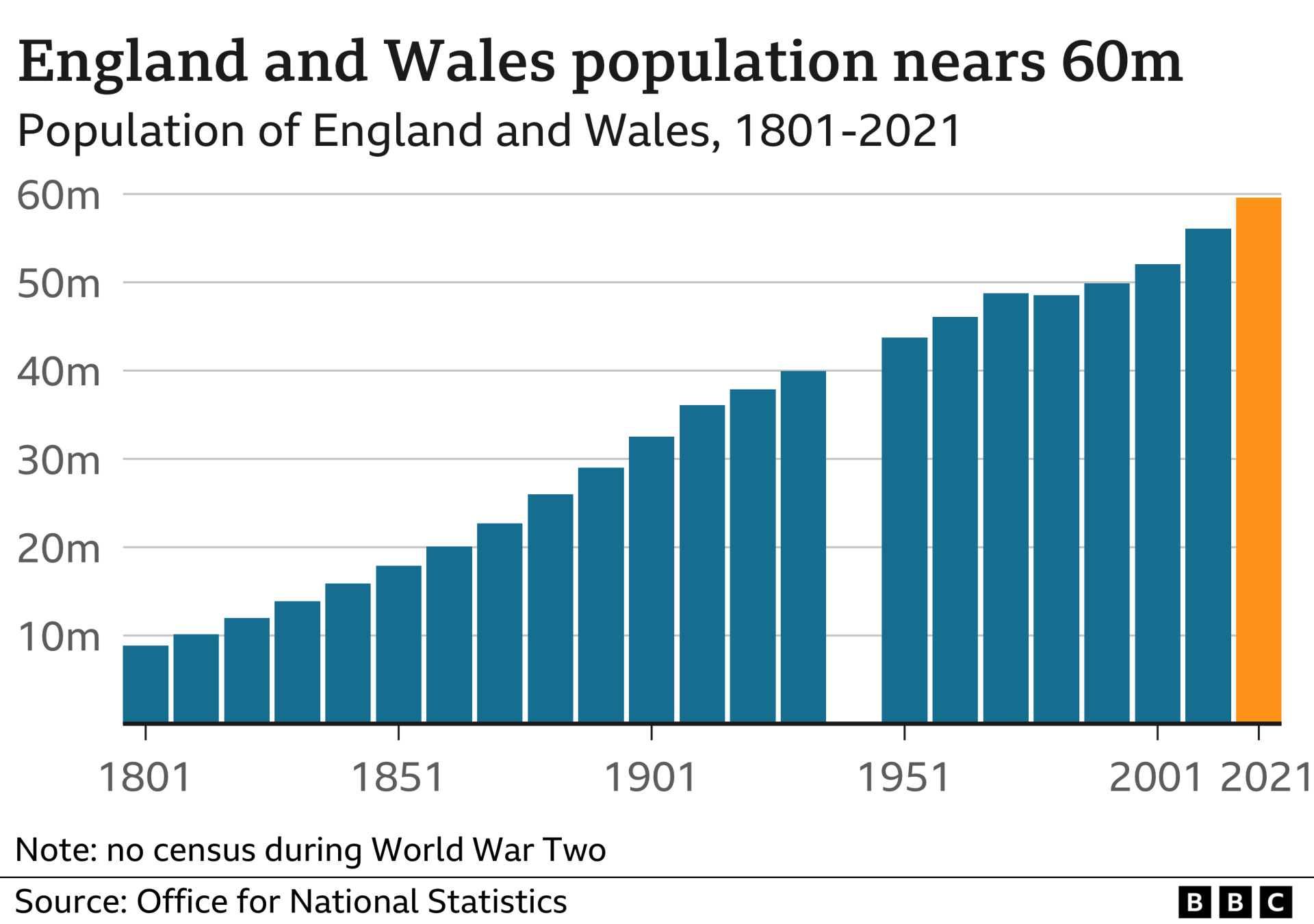New census data shows immigration is still out of control
News & Social Media / Post
The UK has abandoned control of immigration

The population of England and Wales has risen to 59,597,300, results of the 2021 census show. It grew by more than 3.5 million (6.3%) since the last census in 2011 and there are more people over 65 than ever. When added to published census figures for Northern Ireland and official estimate of the Scottish population for 2020, the UK population now stands at 66,966,400. The rise is one of the biggest since the census began in 1801. The figures, we assume, do not include the >1m illegal immigrants. Data from the 2021 census for England and Wales will be published in stages over the next two years, the ONS said.
Some areas have seen a staggering population growth of 117% while remote towns have seen their populations decline considerably. So much for levelling up.
The broader trends, though, don’t tell us anything we didn’t know already. There is an acute housing shortage in places close to centres of employment. It also explains why schools are oversubscribed and access to timely healthcare is collapsing. Alarmingly the data also shows an ageing population suggesting our social care problems are only going to get worse.
The data also shows a decline in births, which is more than likely a consequence of increased competition for resources. When starter homes cost in excess of £200k, which aren’t even large enough to bring up a family, we’re making it harder and harder for young people to set down roots. The glib answer is always to build more houses, but if demand created by mass immigration keeps piling up then demand will always outstrip supply.
Of equal concern is that according to analysis carried out by campaign group Generation Rent, the number of private renter households in England headed by someone aged 65 or older is set to increase from 370,000 in 2015-16 to 995,000 by 2035-36. The rise will come as the result of more people reaching their forties without having made their first step onto the housing ladder, at which point it becomes increasingly difficult to get a mortgage, the report said.
We were told that increased immigration would pay for our pensions and elderly care, but that’s increasingly looking unlikely. Meanwhile immigration is adding to energy demand, and putting massive pressure on roads, water and basic infrastructure which is already at breaking point. Our villages are becoming towns and our towns are becoming cities, eating away at precious countryside, and everywhere becomes characterless urban sprawl. All must be sacrificed on the altar of GDP even if our cities turn into ungovernable multicultural slums.
Chiefly, the ONS data tells us that the UK has all but abandoned control of immigration. The prevailing mentality among policy makers and think thanks is that more immigration is the solution to structural problems and a means to mask anaemic economic growth.
We now know that the Tories have no intention of getting to grips with immigration. Boris Johnson intends to offer more visas to India in exchange for a trade deal, while non-EU immigration has skyrocketed since Brexit. Time and again the British public votes to control immigration, but the message just isn’t getting through. The Tories are only ever conservatives in opposition. There is only one party with a serious manifesto and a plan to control immigration, and that’s UKIP.
If Britain is to survive as a coherent, governable country, then immigration control has to be at the forefront of policy. The Tories will the issue into the long grass every time, always stopping short of making meaningful policy reforms. As for the other establishment parties, they simply don’t care how much misery they heap on the working classes of Britain, just so long as they get to parade their progressive credentials to each other. We’re running out of time to save Britain, and the only way to do that is to join UKIP.
Recent National News











